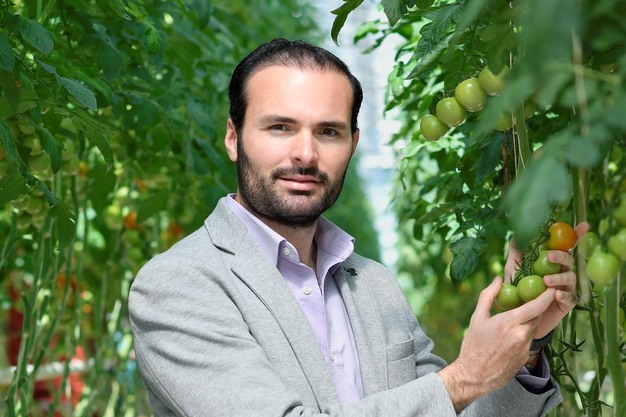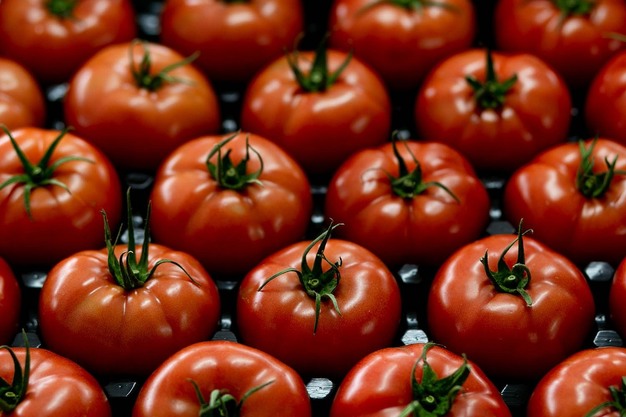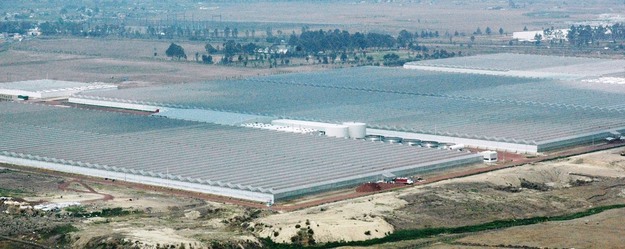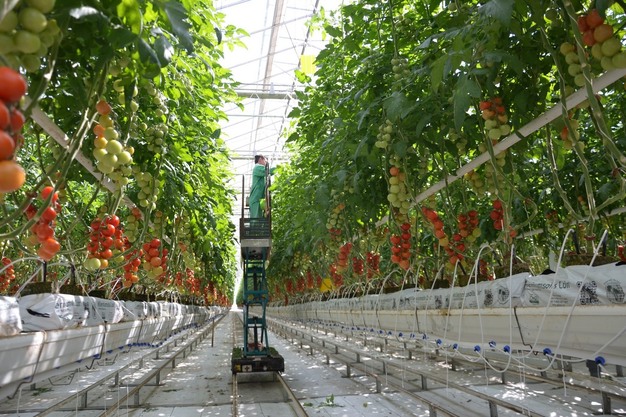At Bionatur Invernaderos Biológicos de México, located in Pasteje, México, tomato production is a balance between science, consumer demand, and global trade realities. They grow a broad spectrum of tomato varieties, including beef, TOV (tomatoes on the vine), grape, cocktail, cherry, and medley. "Our selection process begins with resistance to Tomato Brown Rugose Fruit Virus (ToBRFV), followed by productivity per square meter, and, finally, flavor - quality we consider non-negotiable," General Manager René Tort Llanos shares.
 © Bionatur
© Bionatur
René Tort Llanos, General Manager: Bionatur
Changing expectations in the export market
René says that over the past few years, expectations from major export markets like the United States and Canada have evolved dramatically. Where once food safety certifications were viewed as value-added benefits, they are now simply non-negotiable standards. Meanwhile, convenience has taken center stage, with demand growing for ready-to-eat products and smart packaging tailored to varied consumer lifestyles.
"Additionally, tomatoes are no longer treated as seasonal produce. Year-round supply, consistent quality, and recognizable branding are now essential. This has required substantial investment in infrastructure and operational discipline from producers like us."
 © Bionatur
© Bionatur
The 17.09% tariff: A critical disruption
The landscape shifted dramatically on July 14, 2025, when the U.S. imposed a 17.09% compensatory tariff on all fresh tomatoes imported from Mexico. This development has hit producers hard. While profits can be deferred, cash flow cannot, making liquidity the single most important survival factor for tomato growers today.
René elaborates that in response, the Mexican government introduced minimum export prices in an effort to counter U.S. dumping allegations. "While we support the idea in principle, since it fosters a fair playing field, the imposed prices don't always align with market dynamics, leaving many growers unable to sell their harvest."
 © Bionatur
© Bionatur
Redefining buyer relationships
"These trade pressures have also transformed our commercial strategy. Rather than working with a wide array of buyers, we have streamlined our client portfolio, choosing only those distributors with financial resilience and long-term commitment. In such a volatile environment, it's not enough to focus on monthly results. Our priority is the sustainability of the industry for the next 50 years."
Rising costs, stagnant prices
While Mexico remains highly competitive, especially during peak seasons when it supplies nearly 100% of U.S. tomato demand, the reality is that production costs continue to rise, from labor to inputs, while supermarket prices remain static.
"This imbalance forces us to continuously improve operational efficiency, seek higher-yielding varieties, and invest in financial and commercial resilience."
He adds that historically, growers were judged based on yield, quality, and price. But today's challenges demand expertise in financial planning, foreign trade, and tax strategies. Those without strong fiscal management are at high risk, with job losses and business closures becoming real threats across the industry.
The illusion of easy alternatives
Shifting to new crops or markets may seem like a solution, but it's not that simple. Tomatoes are highly perishable, and global freight costs remain prohibitively high. "Domestically, the Mexican market does not yet value traceability or food safety to the extent that our model requires," René states.
Alternatives like cucumbers or peppers carry their own risks; a mass shift would lead to oversupply and price collapse. "Therefore, our strategy is to adapt within the tomato category, improving efficiency and compliance rather than making reactive crop changes."
 © Bionatur
© Bionatur
Industry support: A call for proactive leadership
While the Mexican government has taken steps, such as setting minimum prices, industry-wide preparedness has been lacking. Despite signs of pending tariffs as early as January 2025, no coordinated strategy was implemented. "The risk of tariffs was clear as early as January 2025, yet the industry was caught unprepared. In horticulture, where you can't simply "turn off" production, this inaction has been costly. We urgently need faster and more decisive leadership from both the government and trade associations."
Legal and political pathways: Hope on the horizon?
Some U.S. congressional representatives, particularly from Texas and Arizona, have sent letters to the U.S. Department of Commerce urging a review of the tariffs. But René says they are not banking on quick policy reversals.
"The real opportunity for change lies in consumer pressure, especially during the winter season, when Mexican tomatoes dominate shelves. Only a coordinated effort by growers, distributors, and retailers, united by a shared commitment to quality and availability, can drive policy change in Washington."
 © Bionatur
© Bionatur
Adapting to the "New Normal"
He mentions that for growers who are financially disciplined and operationally robust, this crisis offers an opportunity for growth and consolidation. "At Bionatur, our strategy is not to pivot away from tomatoes, but rather to become even better tomato growers. That means more efficient, more resilient, and more strategic."
"We are doubling down on our core strengths: cutting-edge greenhouses, transparent production, and long-term partnerships with like-minded clients."
A message to U.S. consumers and legislators
"To our neighbors in the U.S., we say this: The tomatoes you love - those with reliable taste, safety, and availability - most likely come from Mexico. Our workers, our technology, and our commitment make that possible 52 weeks a year," he shares proudly.
"We are not asking for favoritism; we are asking for fairness. Tariffs imposed to protect a small group of growers may provide temporary relief, but they will raise prices and reduce choices for millions of American families."
He concludes with the invitation, "Let's negotiate. Let's collaborate. And most importantly, let's remember that behind every tomato on your plate is a story of dedicated growers, evolving markets, and a shared love for quality food."
For more information:![]()
Bionatur Invernaderos Biológicos de México
René Tort Llanos, Director General DPA / Bionatur
[email protected]
bionaturmexico.com
